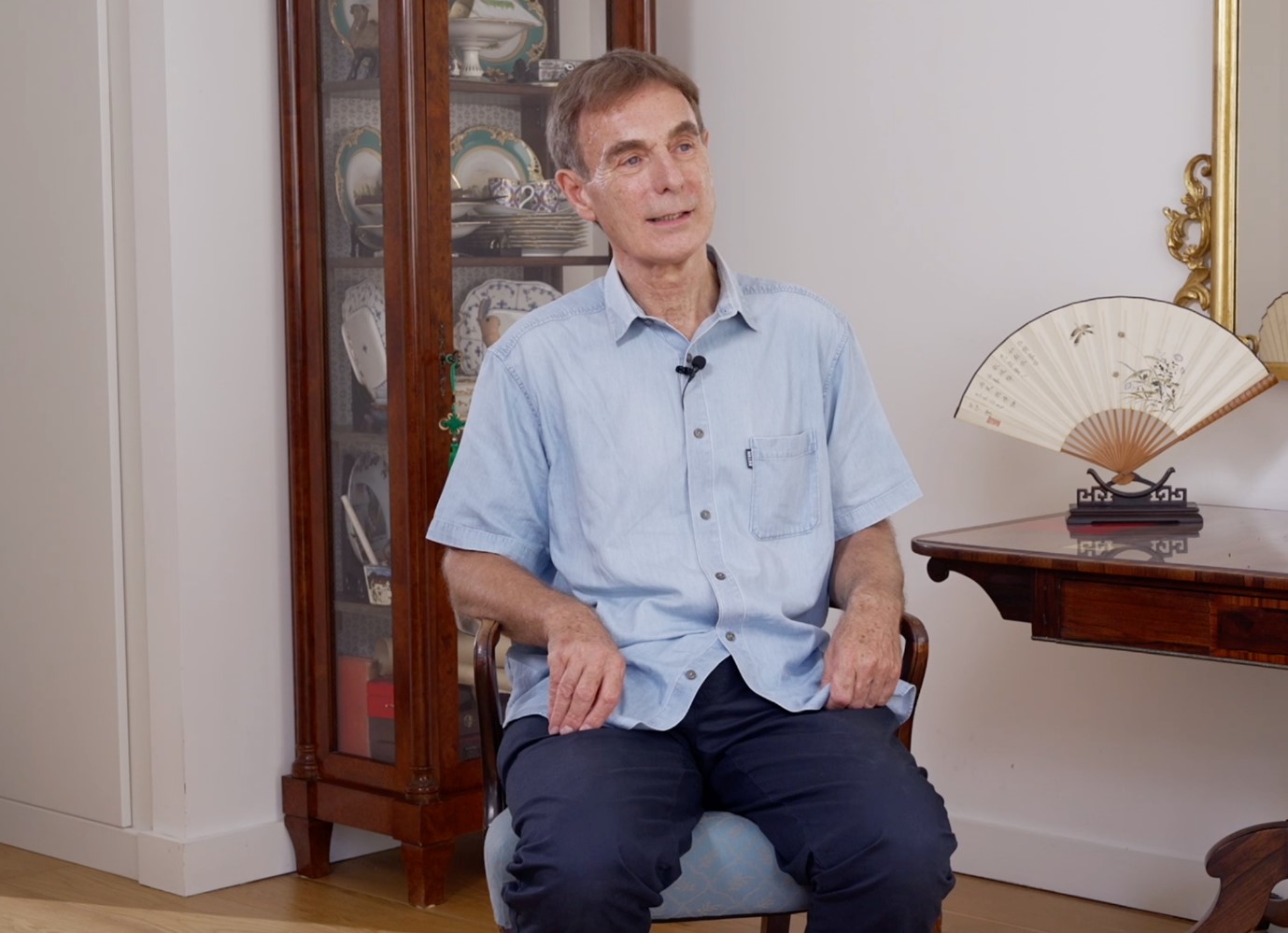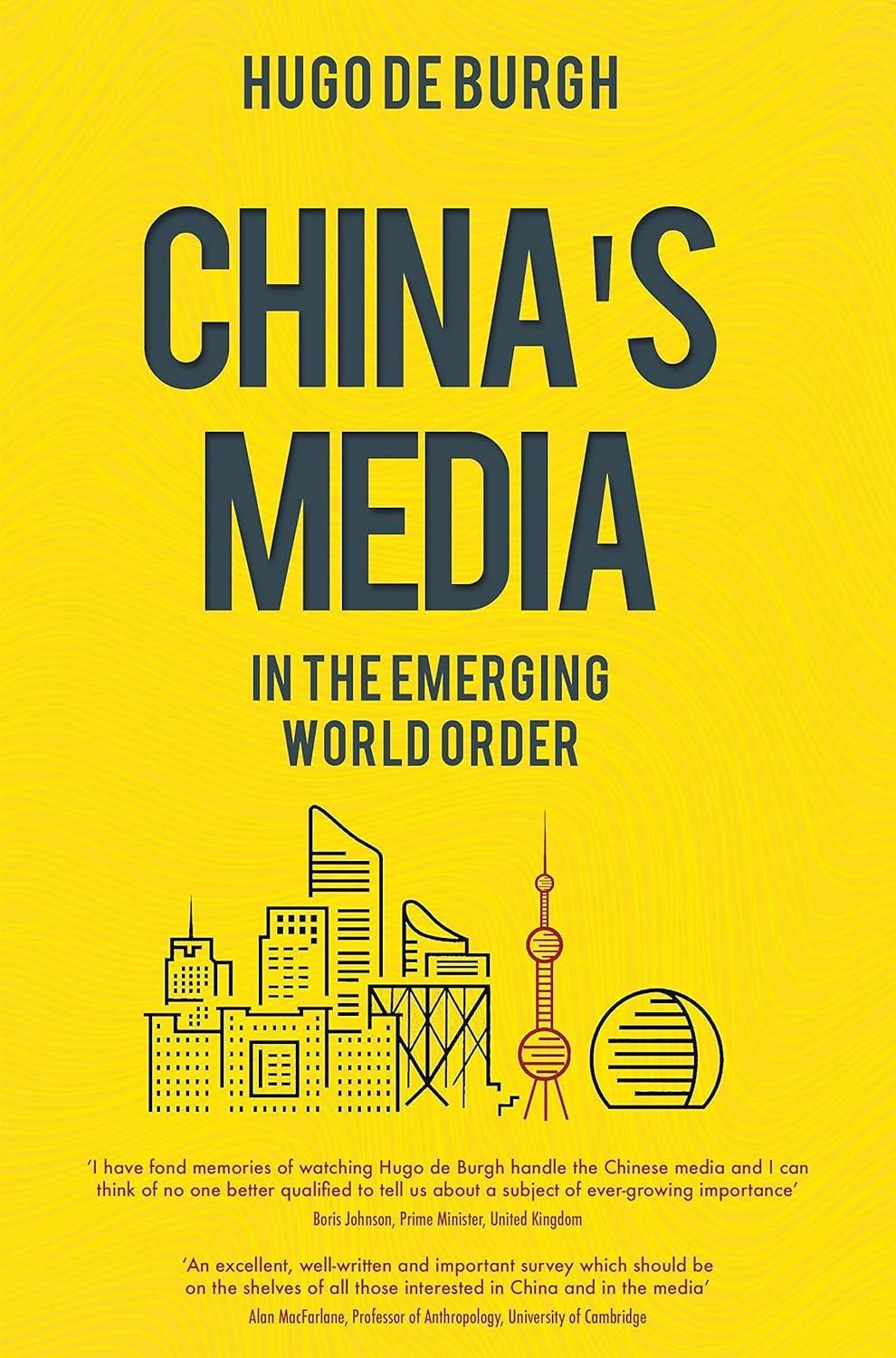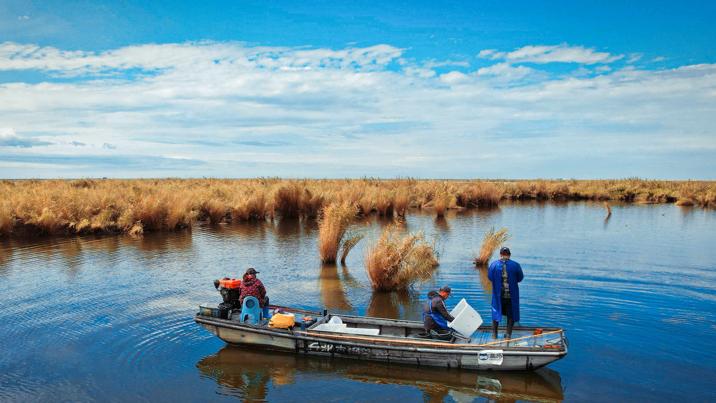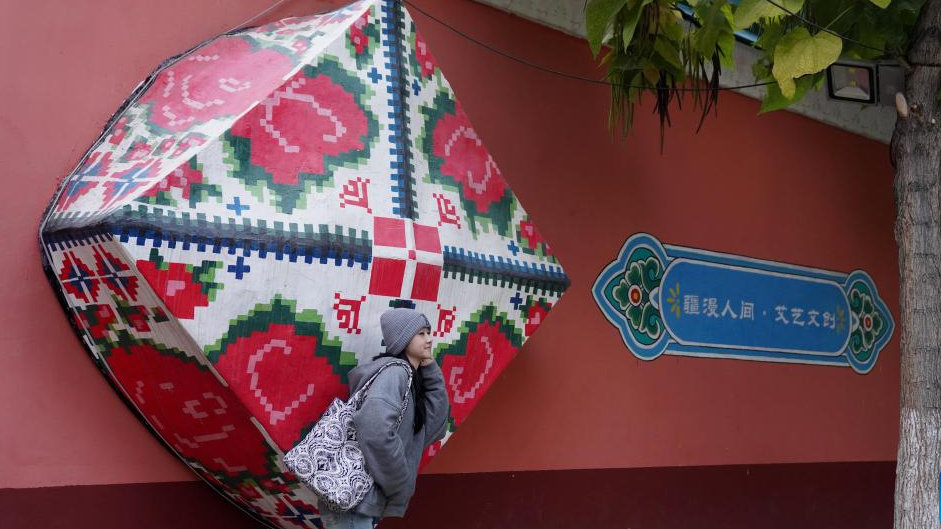Hugo de Burgh: Seeing things from a wider perspective
How should China create a dialogue with the world? How can Western readers understand the actual China? How to foster a better future relationship between China and the West by promoting exchanges among young people? On a hot summer day in early August, People's Daily Online interviewed Hugo de Burgh, who has worked extensively in media and education. He is currently the director of the China Media Centre at Goldsmith's College in London, and has taught at several universities, such as Nottingham University, Westminster University, Edinburgh University, and Tsinghua University.
De Burgh hopes that young people from China and the West can go beyond assumptions ingrained in their society and culture, often seen in the media, and understand things from a wider perspective.

Hugo de Burgh (Photo/Boyu Wang)
Exploring the Chinese media industry
People's Daily Online: After having worked extensively in the field of journalism, you started focusing on higher education in the UK and started to lead the China Media Centre in 2005. How have you promoted various exchanges between China and the UK over the years?
Hugo de Burgh: The China Media Centre is now a different entity; it was metamorphosed in England as the China-UK Creative Industry Centre within Goldsmith's College in London. But we still call ourselves “Zhongguo Chuanmei Zhongxin.” The Centre evolved in a rather curious way because China was going to have the Olympics in Beijing. The British government asked me if I could arrange some courses for Chinese media spokesmen to help them understand how the Western press, particularly the English-speaking press, would behave when they came to China. There came maybe 40 0r 50 of the top spokesmen from Chinese ministries and Party offices. The spokesmen were so pleased by this that they asked the Centre to give a similar kind of training to about 600 media spokesmen all over China.
The China Media Centre is currently receiving visitors from various Chinese departments and provinces. These people are coming to learn about Britain and share ideas about other international issues with their British counterparts.
People's Daily Online: Over the years, you have published many books on the Chinese media industry, such as "China’s Media in the Emerging World Order", "The Chinese Journalist", and "China’s Environment and Environmental Journalists". What motivated you to write about the Chinese media industry?
Hugo de Burgh: I wanted British people or other readers of my books to understand more about China’s media because, for many years, the West and other countries outside of China assumed that Chinese media consisted of propaganda.
The extent of this misinformation was brought home to me when I took a professorship at Tsinghua University’s Schwarzman College a few years ago. The American student body was primarily astonished when I showed them a video about China’s media because they had assumed that China did not have any media except propaganda. I showed them variety shows, discussion shows, excellent dramas, and light entertainment.
My book, "China’s Media in the Emerging World Order", was written to provide people in the political and international affairs worlds with some background knowledge of China’s media landscape because, after all, China’s media consists of the most extensive media industry in the world. When writing the book, I had in my mind a young person who wants to be a politician in Britain or the United States or personally wants to be an international relations specialist, somebody whose knowledge and understanding of China would be vital in the future because China is economically, politically, and culturally so influential.

Cover of Hugo de Burgh’s book "China’s Media in the Emerging World Order"
People's Daily Online: What are some other cross-cultural exchanges with which you have been involved? Are there any ongoing that you would like to share?
Hugo de Burgh: I was involved in a documentary series called "The West You Don’t Know". The idea was to demonstrate some of the problems that Western development has provided, such as problems of education, health, and bureaucracy. The objective was to show the risks of going down these roads that the West has gone down, which we regret going down; China should be careful not to make the same mistakes.
I have decided that novels are the best way to express my thoughts about life and people. I am writing a novel about Chinese students in London and their difficulties in a not always welcoming climate abroad.
Questioning your own assumptions
People's Daily Online: As the Walt Disney Chair in Global Media and Communications at Schwarzman College, Tsinghua University, what do you believe is central to promoting mutual understanding between Chinese and Western students?
Hugo de Burgh: For Europeans and Americans who are used to thinking of themselves as the leaders in the world in many different ways, they need to understand the enormous power and strength of Chinese civilization in the past and the terrible period that China has gone through since the early 19th century for the last 200 years. It helps them to understand the attitudes of Chinese leaders and ordinary Chinese people, as well as helping them to place in perspective the arguments that go on between our various countries. If my young men and women go away with a broader perspective, then I have done all I can do.
I do not think there is much problem with Chinese people understanding the Anglosphere and so on. For example, Chinese people are very knowledgeable about how the UK works on the whole. They do not need to be educated about many other things we take for granted. It is difficult to get people from the West, except a small minority of people, who are interested in China and willing to go there. As with my students at Schwarzman, the experience opens their eyes to a different way of looking at the world. So, once you go to China and you have a good experience, then as a young person, you can no longer believe the kind of nonsense that is written in the newspaper or television programs about how China is the enemy of the world.
People's Daily Online: Schwarzman College is committed to fostering future global leaders. What are some important things that you believe the next generation of world leaders should learn?
Hugo de Burgh: It is quite difficult to question your own assumptions. This goes for American and British students as well as Chinese students. American students found it very difficult to imagine that their ideas about identity, political correctness, and these kinds of fashionable issues, might not be shared by people from other civilisations. They assumed that China was somehow a monolithic polity; China is a very varied country. But the same with some of the Chinese students, who assumed that what they have been told about America, that was often very negative, was always the case. In both cases what I wanted them to do was to interrogate their own assumptions; assumptions which their culture and their society had given to them. It does not mean to say they were undermining or disagreeing with their culture and society, but they have to understand and look at them from the perspective of other people.
People's Daily Online: As one of the founders of Kensington Wade, the first bilingual English-Chinese prep school in Europe, what led you to get involved in this amazing project?
Hugo de Burgh: I started learning Chinese too late. Although I managed to read Chinese novels, I was never going to be very good at speaking or composing in Chinese. I decided that we needed British children who had learned Chinese from a very early age. Therefore, they not only spoke the language but also felt at home talking to Chinese people and with Chinese ideas of what the world and life are all about.
In fact, the children pick up almost by osmosis as they are learning the language and stories attached to the language. This for me was a great victory of feeling that at least there were some British people, who would in the future be able to say they understood something about how Chinese people think, work, and operate.
Photos
Related Stories
- Chinese modernization will create new opportunities: ambassador
- Chinese vice premier talks with UK chancellor of exchequer on economic cooperation
- Xi says China, Britain should remain firm as partners, strengthen dialogue and cooperation
- China has positive, open attitude to enhancing exchange, cooperation with U.K.: Chinese foreign ministry
- China-UK cooperation serves interests of both countries and world: ambassador
- China, UK share broad cooperation potential: spokesperson
- Chinese premier congratulates new British PM
- UK shadow foreign secretary vows to pursue consistency, engagement with China
- Families of Lisbon Maru survivors visit Zhoushan, E China's Zhejiang
- Chinese, British families cherish eight-decade-old bonds formed in Lisbon Maru rescue
Copyright © 2024 People's Daily Online. All Rights Reserved.









